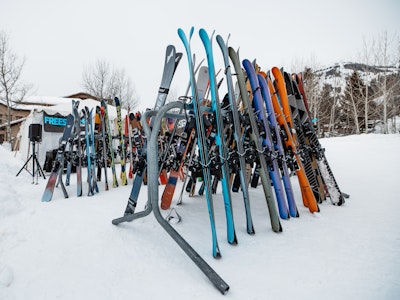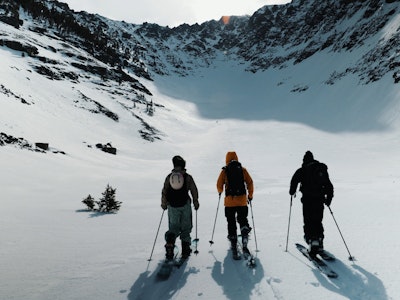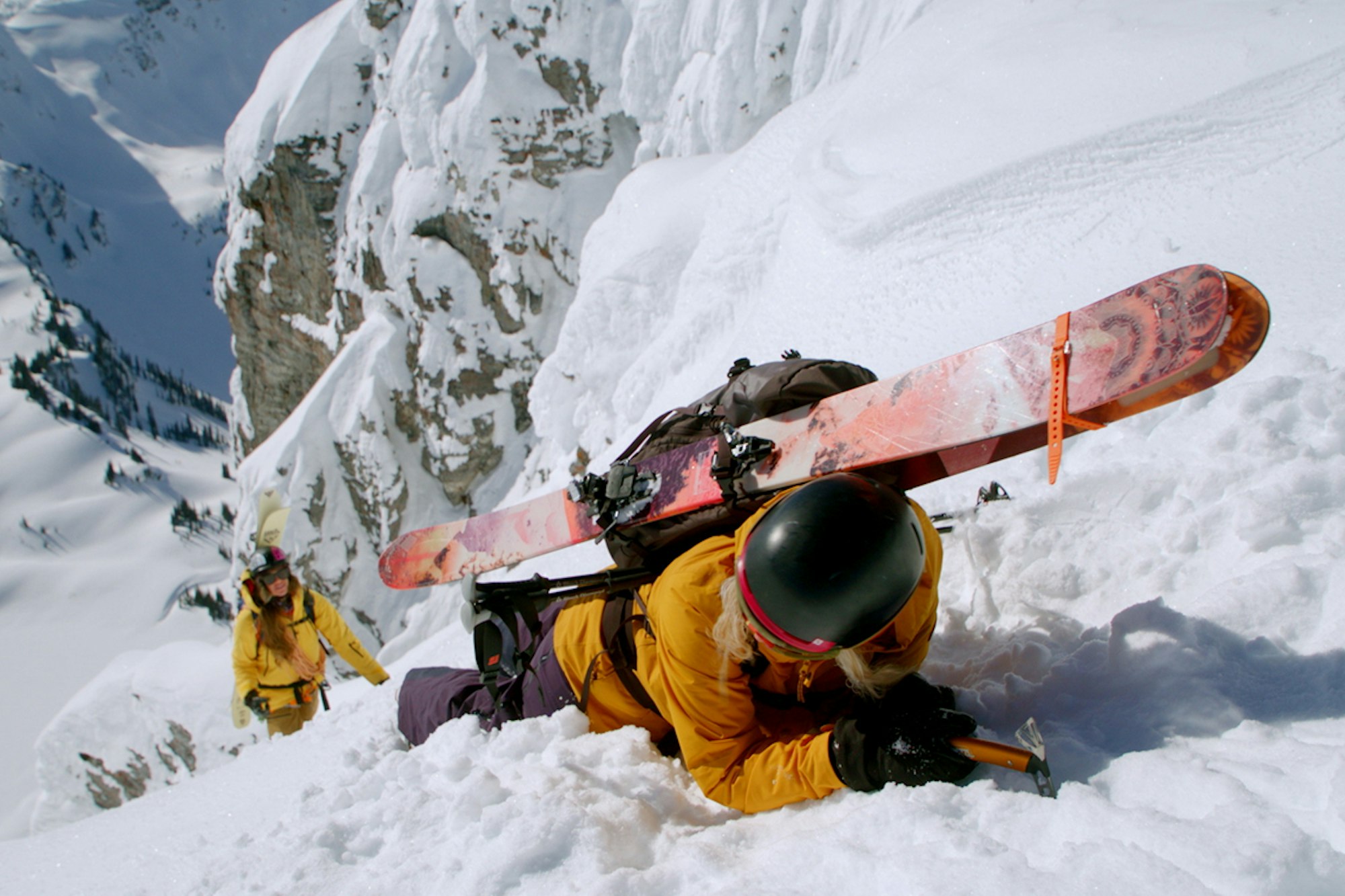“It’s myturn to shine, to be one of these ski industry darlings. They go up, they go down. How hard can it be?”
Famous last words.
This is how comedian Katie Burrell opens Dream Job, the most cutting-edge indie ski film to hit the screens this season. The comedy documentary features a girl (Burrell) working in the ski industry who aims to become one of the stars. The film follows her through a day in the life of three of the industry’s biggest names: big mountain extreme skier Christina “Lusti” Lustenberger; Girls Do Ski founder and coach Leah Evans; and Diny Harrison, the first female certified mountain guide in North America; complete with a cameo by up-and-comers, The Blondes. Needless to say, Burrell discovers how hard “being a star” can actually be.
With its intelligent storyline, dry humor, featuring an average skier as a main character alongside the pros, and all female cast (while never admitting it’s a women’s empowerment film) Dream Job is more than a little bit subversive—and it’s exactly what ski media needs rights now.
Let’s be clear: there will always be a place for straight-up ski porn. It’s what unfailingly gets us psyched for winter. But skiers are also a sophisticated audience. As storytelling and the content with which to deliver it has evolved in recent years—think everything from form-bucking Netflix series to Instagram stories to YouTube videos made with GoPro footage—there’s a need for innovation in the industry’s media to keep up. And those recent ski films that do boast evolved story lines tend take themselves quite seriously, sidelining the joy inherent in skiing. In contrast, Dream Job recalls the best irreverent traditions from the era of G.N.A.R. in not taking itself seriously (even though it stars skiers who have accomplished gravity-laden feats) to remind viewers of this very fundamental fact of skiing: it’s fun.
The concept originated with Revelstoke, B.C.-based filmmaker Colleen Gentemann. Inspired by a recent story on Danyelle Magnan’s bid to become the first female avalanche forecaster on nearby Rogers Pass, Gentemann aimed to create a film to highlight some of the incredible stories unfolding close to home. With its unique critical mass of women ski phenoms, Revelstoke offered no shortage of subject matter. She pulled in local stand-up comedian Burrell to collaborate, and the film evolved from there with a plot line that uses humor to make its points without beating the audience over the head with them.
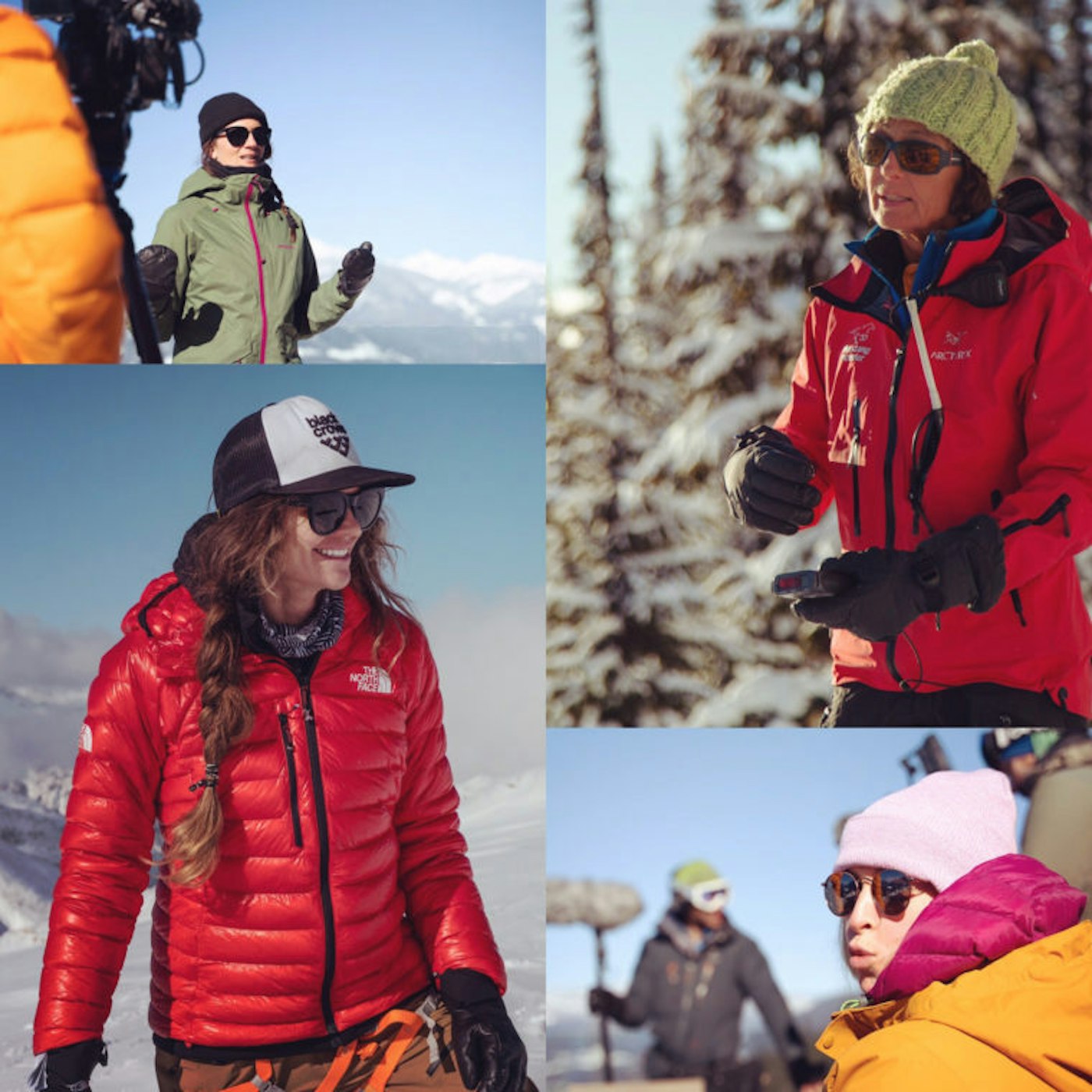
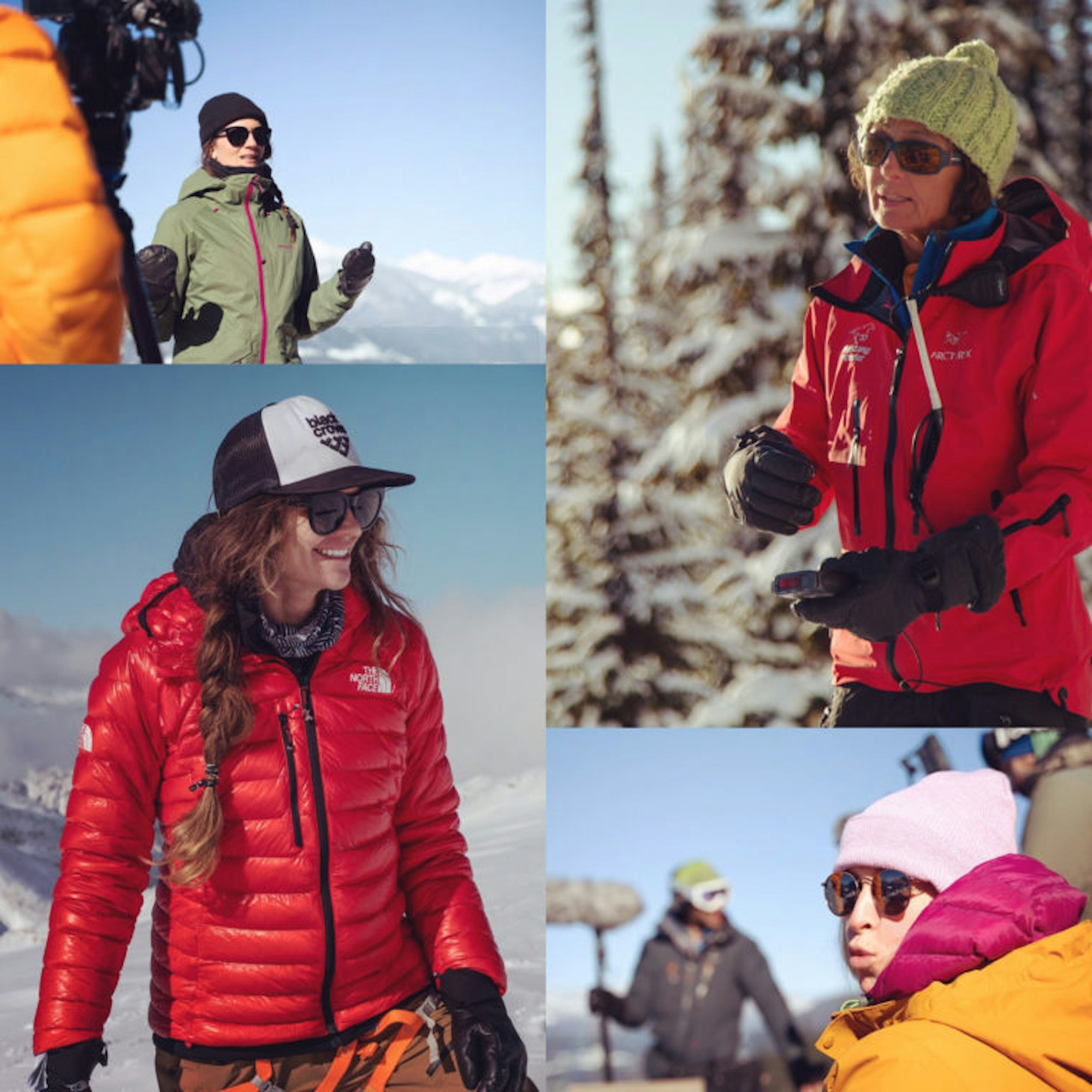
“The function of comedy is to reveal truths,” Burrell explains. “Without us ever having to actually say, Lusti is epic, you simply watch me heli-evac myself out of the couloir she goes on to ski. You can see how much she just bosses this insane line while I’m crippled with fear as the average skier at the top of it. It’s a refreshing take on these women’s work—that what they can do is revealed to the audience in its full strength and power, without having to self-promote, through the lens of comedy.”
That subtlety is also the perfect retort to this winter season’s disappointingly male-dominated slew of ski films. The gender equity conversation in the outdoors is still new and one that very much needs to be had, although the optics lately can be deceptive. As more brands introduce women-only marketing campaigns and media platforms cover female accomplishments in more equitable amounts, it can seem that barriers to entry and skewed participation levels for women have been all but eliminated. This unfortunately isn’t the case at all, as demonstrated in part by the fact that 41% of alpine skiers and 34-35% of backcountry skiers are female, according to Snowsports Industries Association’s 2017 Participation Report, but women aren’t being respresented proportionally in ski films. But the overt “female content” saturation has also—quite unfortunately and very unintentionally—exhausted some audiences.
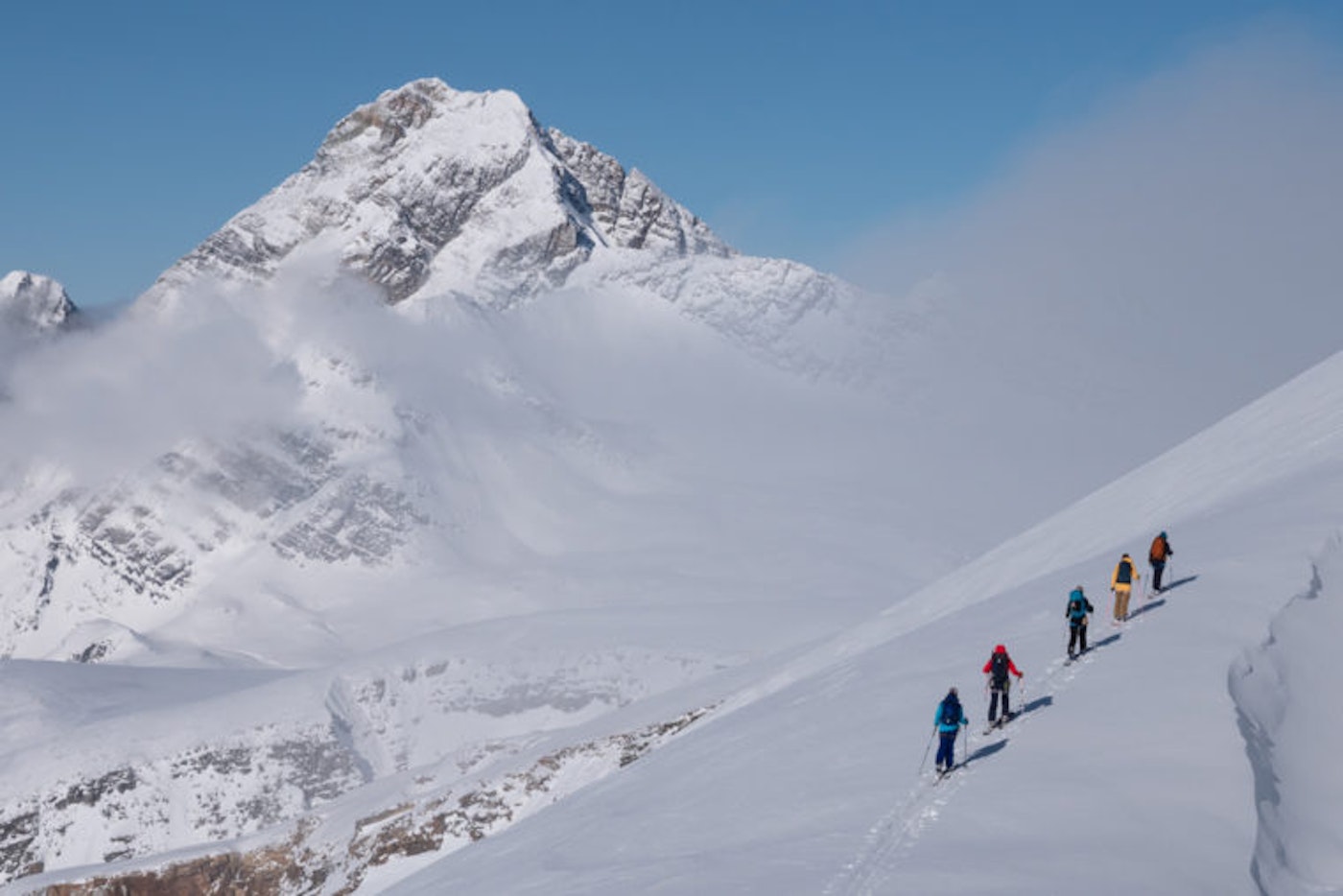
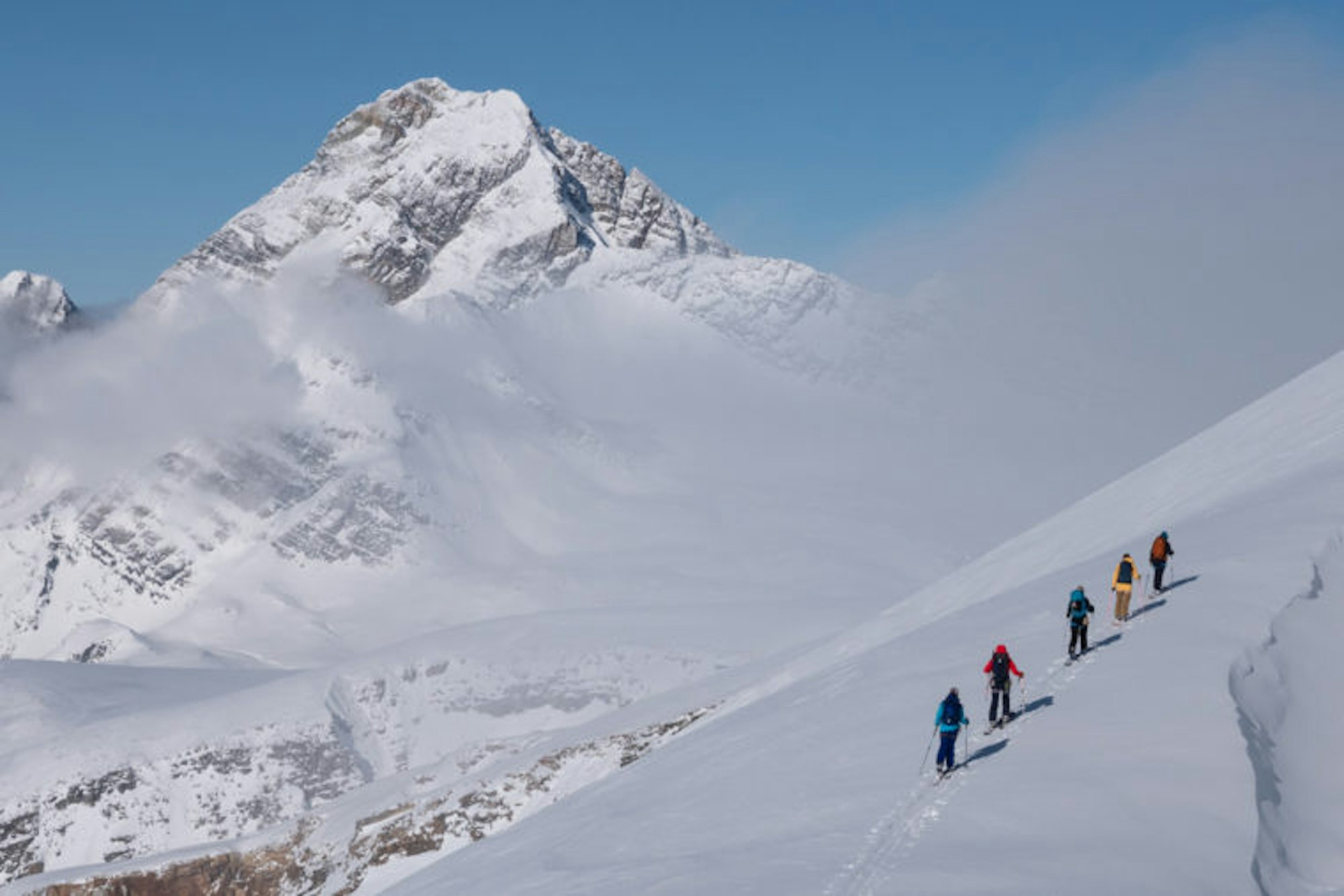
“I think ‘female content’ as a genre is keeping us turning on the same spot, not moving us forward,” says Burrell. “I understand there has been and still is a gender imbalance—but saying it’s ‘female content’ creates an affirmative action vibe that takes away from how amazing these women are compared to anyone. Truth is non-gendered. Our goal was to remove that element, and these three women were who Colleen felt as a filmmaker were the most powerful foils for my character for what she wanted to communicate in telling a strong story.”
With its humor and inclusion of the average skier, Dream Job also appeals beyond the world of skiing to a broad audience, which was one of Gentemann’s goals. Burrell’s hilarious portrayal as a self-deprecating everyday skier makes the film accessible to a viewer who’s never even put on skis, who might find the scene of her trying to unsuccessfully close the doors on the foreign machine of a snowcat more relatable than watching Evans hit a 30-foot cliff on a hightlight reel. In Burrell, those viewers have a character to identify with that takes them along for the ride on appreciating that 30-foot cliff drop. In fact, the film just made its well-received premier on the film festival circuit at the Los Angeles Documentary Film Festival—to a room full of non-skiers, who seemed to find it as hilarious as the Banff Shredfest audience.
“We did a good job of shining a positive, beautiful light on these women without going super deep,” says Gentemann. “My hope is that the comedy provides access to highlight them to broad audiences where young women can see them and say, That could be me.”

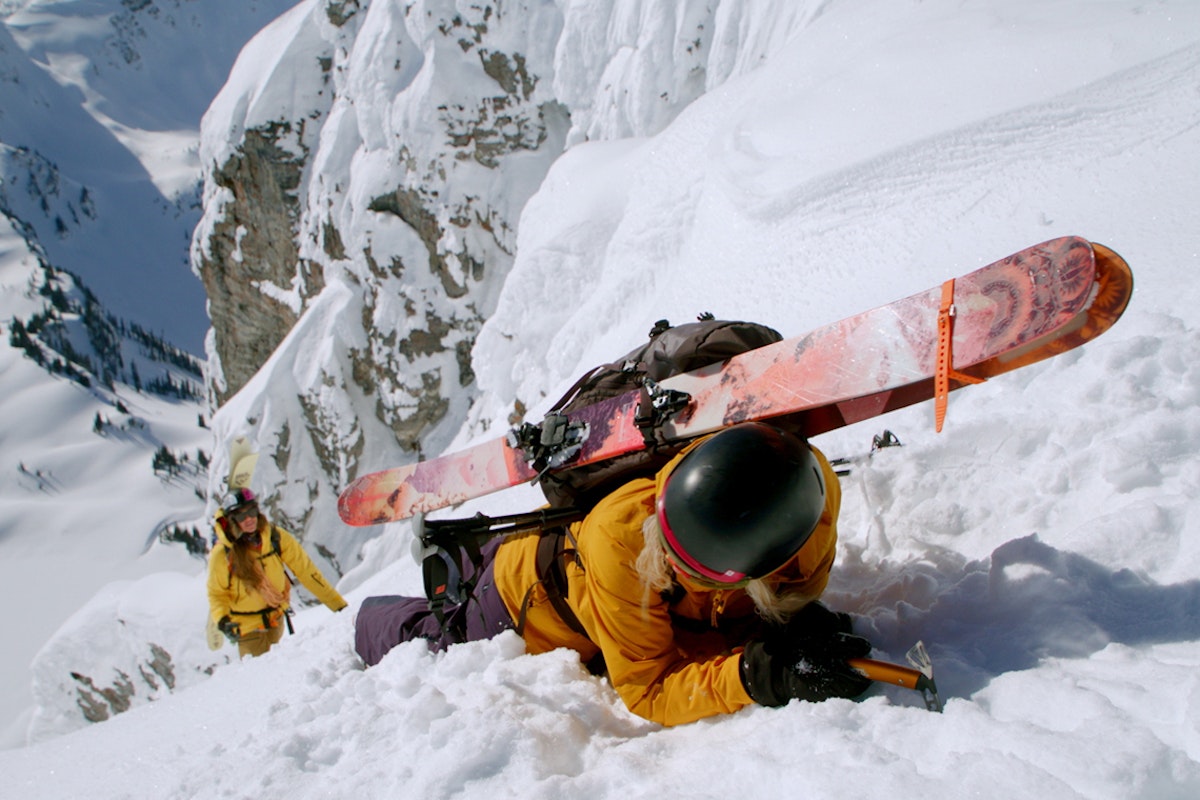
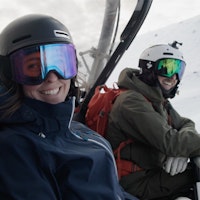
![[GIVEAWAY] Win a Head-to-Toe Ski Setup from IFSA](https://www.datocms-assets.com/163516/1765920344-ifsa.jpg?w=200&h=200&fit=crop)
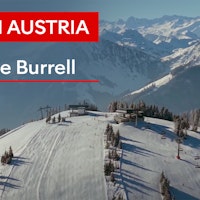
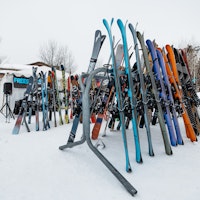
![[GIVEAWAY] Win a Legendary Ski Trip with Icelantic's Road to the Rocks](https://www.datocms-assets.com/163516/1765233064-r2r26_freeskier_leaderboard1.jpg?auto=format&w=400&h=300&fit=crop&crop=faces,entropy)
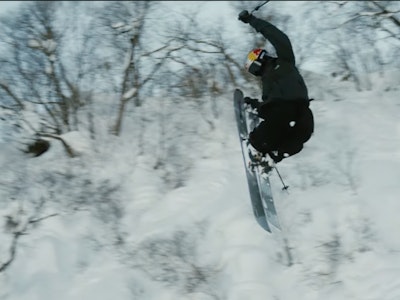

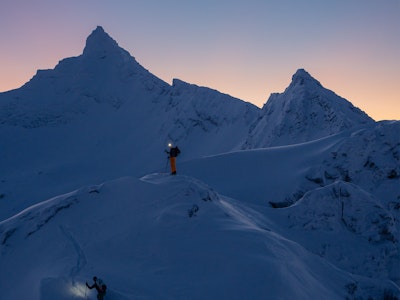
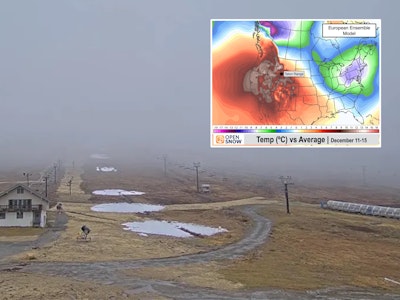
![[GIVEAWAY] Win a Head-to-Toe Ski Setup from IFSA](https://www.datocms-assets.com/163516/1765920344-ifsa.jpg?auto=format&w=400&h=300&fit=crop&crop=faces,entropy)
